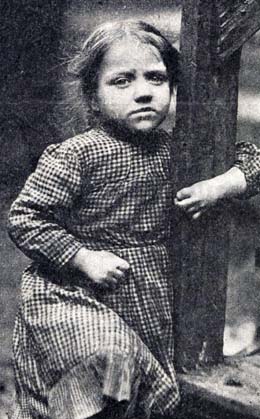This People's History is based on the early records of Wellspring Family Services, a private, non-profit organization helping families and children in Seattle and King County overcome life’s challenges. Founded in 1892 as the Bureau of Associated Charities, Wellspring Family Services has operated under a succession of names. At the time of the events described in this essay, it was called the Seattle Social Welfare League. This essay describes how the agency distinguished between relief and social service efforts during the 1920s.The organization's services have changed over the years, but have always centered on a commitment to a stronger, healthier community. These archival records offer glimpses into aspects of Seattle history not well documented elsewhere, examining societal attitudes toward poverty, need, illness, and addiction -- all of which have altered considerably since Wellspring's early days. This is one of a series entitled "Out of the Archives," and appeared in November 2011 in Wellspring's monthly internal newsletter, The Fiddlehead. It was written by Wellspring Family Services executive assistant Deborah Townsend.
Relief vs. Social Service
It’s the 1920s -- think flapper dresses, think speakeasies, think dancing the Charleston. Then think about the Social Welfare League of Seattle.
Here’s a public information brochure from that time. The brochure is a long rectangle, 6 x 16¼ inches, folded to make five panels on each side. There is no date shown, but the list of Board officers indicates 1927-1928. The front panel begins This is Not an Appeal for Funds and promises to tell the stories of “your less fortunate neighbors” helped during the previous year. There are three client stories, with heart-tugging photos.
Along with sharing client stories, this brochure is an educational piece, trying -- still trying, we have to say -- to inform the community about the difference between traditional charity and modern, systematic social service. “Read the following true stories,” the brochure urges, “and see how the old type of charity has been developed into the new, constructive, and therefore more economical work of BUILDING CHARACTER AND CITIZENSHIP.”
There’s some interesting Seattle booster-ism in one section, which starts by disparaging “the old type charity” that “merely distributed doles of food or fuel” and “became as permanent as pensions, and injured or pauperized these recipients.”
"Is that right or kind or economical? Most progressive cities have discarded this mistaken method, having learned from tragic experience that it fixes [cements] habits of dependency, cures no troubles but creates slums. ...
"The poor families of Seattle are not the ones who advocate such a system. Permanent dependence—slums would result. It would mean that we would close our eyes to newer, better methods, more sympathetic care and more profitable [cost-effective] far-reaching use of funds. It would mean hanging a millstone around Seattle’s progress." [italics in the original]
This is an intriguing mix of topics, combining the new professionalism of social work with just a hint of fear-mongering -- that emphasis on slums -- and an appeal to civic leaders’ self-image as progressive. Remember that the 1920s are an era of major public works such as the Denny Regrade and bridge- and dam-building. Downtown Seattle was growing in scope and grandeur. It was however also a time of political corruption and scandal leading to energetic calls for reform in social institutions. So “progress” and “progressive” were key words.
The brochure again and again reflects the tension between charity and social service. That’s a tension that remains with us today, of course: we may feel it every time we hear “got any spare change?” Here’s how our agency described its approach in the late 1920s:
“The Social Welfare League goes to the root of the trouble and helps people to help themselves, renders instant aid where it is needed and then follows up with other forms of service, removing handicaps and ironing out the causes of dependence.”
And again, even more pointedly:
Individual Charity vs. Social Service
"Do you ever hear a sad story and feel inclined to put your hand in your pocket and give money to some poor man or woman? That sympathetic impulse is fine. But to really help people not only sympathy and money are needed but something more.
"Have you time to consult with doctors, relatives, employers, etc.; time to search for a missing son or husband; time to study the underlying causes of the difficulty and then work out a plan that should lead to independence and self-support?
"To give blindly without this careful work is like administering morphine to a sick man; it may relieve the pain temporarily, but it won’t cure the trouble and is likely to do positive harm. Call upon the Social Welfare League to help you help them"
Note the stress on underlying causes and helping the recipient plan toward independence and self-support. Those are still foundational concepts for our work today.
Finally, the last panel of this brochure talks about the Social Welfare League’s connection to the new “Community Fund” -- the forerunner of today’s United Way.

